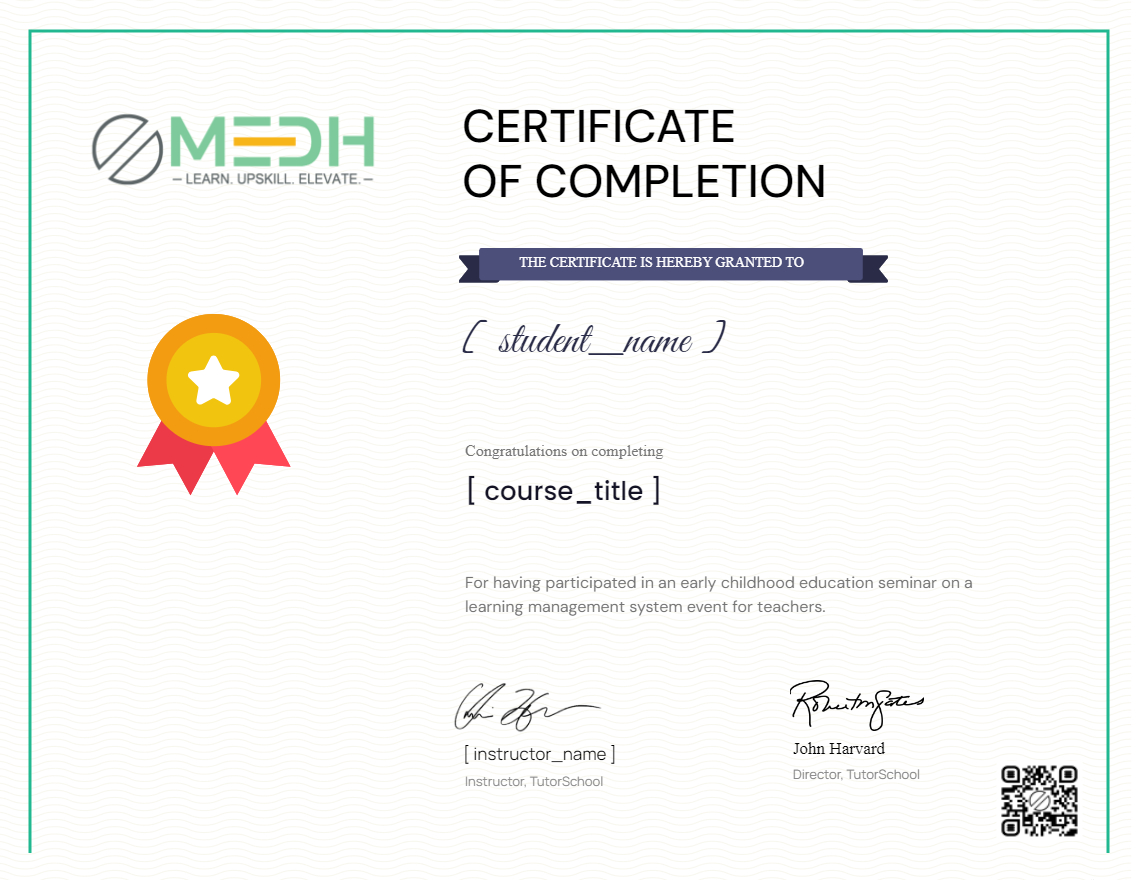DURATION
9 months / 36 weeks
ONLINE SESSIONS
72 (60-90 min each)
MODE
Live Online

About Course
Curriculum
Chapters & Topics
Weeks 1-4: Understanding Emotions and Self-awareness
– Recognizing and Naming Emotions
– Exploring Personal Strengths and Abilities
– Building Confidence through Positive Self-talk
– Understanding Personal Space and Boundaries
Weeks 5-8: Effective Communication and Social Skills
– Developing Effective Communication through Role-plays and Story-telling
– Building Listening and Respectful Speaking Skills
– Understanding the Importance of Sharing and Taking Turns
– Exploring Empathy and Kindness in Interactions
Weeks 9-12: Introduction to Teamwork and Problem-solving
– Understanding the Concept of Teamwork and Cooperation
– Building Friendship Skills and Conflict Resolution
– Developing Problem-solving Skills through Activities
– Recap, Project, Assessment and Certification
Weeks 13-16: Self-Expression and Creativity
– Exploring Imagination and Creative Thinking
– Engaging in Artistic Expression and Storytelling
– Participating in Creative Projects and Presentations
– Sharing Personal Creativity with Peers
Weeks 17-20: Building Confidence and Independence
– Building Self-Confidence and Positive Self-Image
– Encouraging Independence and Decision-making Skills
– Developing Positive Habits and Personal Hygiene
– Sharing Personal Achievements and Experiences – Show & Tell
Weeks 21-24: Social Interaction and Relationship Building
– Building Social Skills for Making Friends and Respecting Others
– Introduction to Teamwork and Cooperation in Play and Learning
– Encouraging Curiosity and Exploration
– Recap, Project, Assessment and Certification
Weeks 25-28: Understanding Emotions and Coping Strategies
– Identifying and Managing Emotions in different Situations
– Building Resilience and Coping Skills through Stories and Activities
– Building Confidence and Self-esteem through Positive Affirmations
– Participating in Group Activities for Expressing and Understanding Emotions effectively
Weeks 29-32: Effective Communication and Interpersonal Skills
– Developing Effective Communication Skills in Different Settings
– Understanding the Importance of Active Listening and Empathetic Speaking
– Exploring Different Forms of Creative Expression
– Building Friendship Skills and Conflict Resolution
Weeks 33-36: Decision-making and Goal Setting
– Setting Personal and Academic Goals for Success
– Understanding the Impact of Decision-making on Self and Others
– Developing Skills to take Initiative in Group Settings
– Recap, Project, Assessment and Final Certificatio
Assessment, Evaluation & Certification (for all Courses)
– Weekly quizzes to gauge comprehension of key concepts
– Practical hands-on assignments
– Thorough evaluation of assignments
– Active engagement in group discussions
– Certification upon Course completion
Note: This curriculum is subject to minor modifications based on the class progress and feedback. Each course is designed to incorporate a mix of interactive activities, case studies, role plays, and reflective exercises to cater to the specific needs and developmental milestones of the respective age group.
Schedule a No-Cost Counselling Session
FAQs
What is the ideal age for a child to start a Personality Development Course?
Children as young as 3 years old can benefit from a Personality Development Course as it lays the foundation for essential life skills, emotional intelligence, and social development.
How does a Personality Development Course benefit young children?
A Personality Development Course for young children lays the groundwork for enhancing self-confidence, communication skills, emotional intelligence, social skills, creativity, and overall personal growth.
What activities are included in a Personality Development Course for young children?
Activities may include storytelling, role-playing, art and craft, music and movement, social games, and group activities aimed at fostering communication, creativity, teamwork, and emotional intelligence.
How does the course help in developing social skills in young children?
The course encourages cooperative play, sharing, turn-taking, and group activities to help children develop social skills, empathy, and positive interactions with peers.
Will the course help my child become more independent and confident?
Yes, the course provides opportunities for children to make choices, solve problems, and express themselves, fostering independence, self-confidence, and a positive self-concept.
What can parents do to support their child's learning from the Personality Development Course?
Parents can reinforce the learning by encouraging positive behavior, engaging in open communication, and providing opportunities for creative play and social interaction at home.
How can parents track their child's progress in the Personality Development Course?
Regular updates from the instructors, observation of the child’s behavior at home, and communication with the child about their experiences can help parents track their child’s progress.
How does the course prepare children for future academic endeavors?
The course lays the foundation for essential skills such as communication, creativity, emotional resilience, and social interaction, which are beneficial for future academic and personal growth.
Note: If you have any other questions or concerns not covered in the FAQs, please feel free to contact our support team, and we’ll be happy to assist you!
Earn a certificate
Add this certificate to your resume to demonstrate your skills & increase your chances of getting noticed.

Select Enrollment Type i Lorem Ipsum
- EMI Options
- Certification
- Efforts
- Sessions
- Assignments
- Quizzes
- Projects

